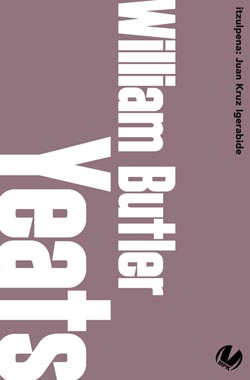
Aurkibidea
Innisfreeko aintzirako uhartea
Maitalea bere bihotzeko arrosaz mintzo
Oihanaren deiadarra entzuten du hark
Zeruko konstelazioen parte zeneko iragan-handitasuna gogoan
Gizakiek hobera egiten dute adinean aurrera joan ahala
Irlandar hegazkinlari batek bere heriotza iragartzen du
Hanrahan Gorria Irlandari kantari
Thoor Ballylee-ko harri batean grabatzeko
Kristau-maitasuna gutxi iruditzen Ribh-i
Aurkibidea
Innisfreeko aintzirako uhartea
Maitalea bere bihotzeko arrosaz mintzo
Oihanaren deiadarra entzuten du hark
Zeruko konstelazioen parte zeneko iragan-handitasuna gogoan
Gizakiek hobera egiten dute adinean aurrera joan ahala
Irlandar hegazkinlari batek bere heriotza iragartzen du
Hanrahan Gorria Irlandari kantari
Thoor Ballylee-ko harri batean grabatzeko
Kristau-maitasuna gutxi iruditzen Ribh-i
Arrosa gorria denboraren gurutze gainean
Arrosa gorria, arrosa harroa, arrosa tristea, nire egun orotakoa,
zatozkit albora, antzinako erara kantatzen dudan bitartean:
Cuchulain, itsasaldi garratzaren kontra borrokan,
druida grisa, basoek elikatua, begirada barekoa, Fergus-i
ezin konta ahala amesgaizto eta hondamendi ekarri zizkiona;
eta zure zeure tristura, itsas gainean zilarrezko sandaliekin
dantzan dabiltzan izar zaharkituek
beren doinu goren bakartiarekin kantatzen duten hori.
Zatoz hona, giza patuak itsutu gabe aurki dezadan
maitasunaren eta gorrotoaren adarretan,
eguna biziarazten duten gauza ergel zoroetan,
edertasun betierekoa bere bidea eginez.
Zatoz hona, zatoz hona, zatoz hona, oi!, eta utzi
leku txiki bat arrosaren arnasak bete dezan,
ezen, bestela, ohiko irrika-gaiak entzuteari utziko diot
—zizare ņimiņoa bere leizetxoan ezkutatzen,
basasagua nirekin batera lasterka belardian barrena, eta
itxaropen hilkor astunak, berea egin eta aienatzen direnak—,
eta hasiko naiz Jainkoak —aspaldi hildakoen bihotz dirdaitsuei
mintzo zitzaielarik— esandako gauza bitxiak non entzungo,
nola ikasiko gizakiek ulertzen ez duten hizkuntza kantatzen.
Zatoz hona. Kantatuko diet, hemendik joateko garaia
heldu aurretik, Eire zaharrari eta aspaldiko garaiei,
arrosa gorria, arrosa harroa, arrosa tristea, nire egun orotakoa.
To the Rose upon the Rood of Time
Red Rose, proud Rose, sad Rose of all my days! / Come near me, while I sing the ancient ways: / Cuchulain battling with the bitter tide; / The Druid, grey, wood-nurtured, quiet-eyed, / Who cast round Fergus dreams, and ruin untold; / And thine own sadness, whereof stars, grown old / In dancing silver-sandalled on the sea, / Sing in their high and lonely melody. / Come near, that no more blinded by man’s fate, / I find under the boughs of love and hate, / In all poor foolish things that live a day, / Eternal beauty wandering on her way. // Come near, come near, come near — Ah, leave me still / A little space for the rose-breath to fill! / Lest I no more hear common things that crave; / The weak worm hiding down in its small cave, / The field-mouse running by me in the grass, / And heavy mortal hopes that toil and pass; / But seek alone to hear the strange things said / By God to the bright hearts of those long dead, / And learn to chaunt a tongue men do not know. / Come near; I would, before my time to go, / Sing of old Eire and the ancient ways: / Red Rose, proud Rose, sad Rose of all my days.